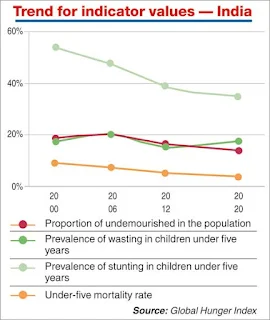Confidence is the cornerstone of a successful career journey. It's the driving force that empowers you to take risks, tackle challenges, and make your mark in your chosen field. However, building and maintaining career confidence isn't always a straightforward path. In this article, we'll explore practical strategies to boost your confidence and excel in your professional endeavors.
1. Self-Awareness: Know Your Strengths and Weaknesses
Understanding your strengths and weaknesses is fundamental to cultivating career confidence. Recognize your skills, talents, and areas for improvement. This self-awareness will help you set achievable goals and enhance your self-esteem. By focusing on your strengths, you can contribute effectively and demonstrate your expertise, leading to increased confidence.2. Set Clear Goals
Setting clear and achievable career goals gives you a sense of direction and purpose. When you have goals to work towards, you gain a clear focus on your journey. Each milestone you reach reinforces your belief in your abilities, boosting your confidence along the way.
3. Embrace Continuous Learning
Investing in your personal and professional growth through continuous learning is a surefire way to boost your confidence. Stay up-to-date with industry trends, acquire new skills, and seek out opportunities for professional development. The more you learn, the more confident you become in your knowledge and capabilities.4. Challenge Negative Self-Talk
Negative self-talk can be a significant barrier to career confidence. Challenge and reframe those self-doubting thoughts. Replace them with positive affirmations that highlight your achievements and abilities. As you practice this, you'll build a more positive self-perception, which is essential for career confidence.
5. Embrace Failure as a Learning Opportunity
Failure is a natural part of any career journey. Instead of letting failures crush your confidence, view them as valuable learning experiences. Each setback provides a chance to grow, adapt, and refine your skills. Embracing failure as a stepping stone to success will strengthen your resilience and confidence.6. Build a Supportive Network
Surround yourself with positive and supportive individuals who believe in your abilities. A strong professional network can offer guidance, encouragement, and valuable insights. Engaging in discussions with peers and mentors can help you gain different perspectives and reinforce your confidence.
7. Practice Effective Communication
Confidence in your communication skills can significantly impact your career success. Practice clear and assertive communication, whether it's expressing your ideas in meetings, networking, or public speaking. Effective communication demonstrates your expertise and enhances your credibility.8. Celebrate Achievements
Don't overlook your accomplishments, no matter how small they might seem. Celebrate each success, whether it's completing a project, receiving positive feedback, or reaching a milestone. Acknowledging your achievements reinforces your belief in your abilities and bolsters your confidence.
9. Take Calculated Risks
Taking calculated risks demonstrates your willingness to step out of your comfort zone and seize opportunities. Even if the outcome isn't exactly as you envisioned, the act of taking risks can significantly boost your confidence and provide you with valuable experiences.10. Practice Self-Care
A healthy work-life balance is essential for maintaining career confidence. Prioritize self-care to prevent burnout. Regular exercise, proper sleep, and mindfulness practices contribute to your overall well-being, which, in turn, enhances your confidence and performance.
Career confidence is a journey that involves self-awareness, growth, resilience, and embracing opportunities. By incorporating these strategies into your professional life, you can unlock your full potential, navigate challenges with poise, and truly thrive in your chosen career path. Remember, confidence isn't about being perfect; it's about believing in yourself and your ability to grow, adapt, and succeed.






.jpeg)


.jpeg)
.png)

.jpeg)







